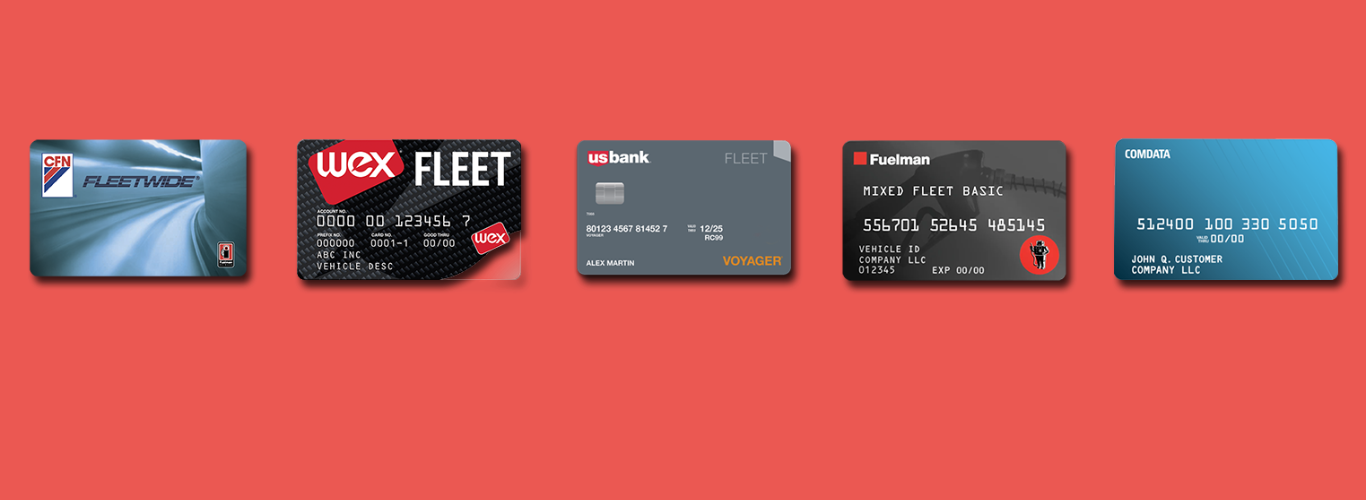What is best fuel card?
What is best fuel card?

Understanding Fuel Card Benefits: Exploring the advantages of using fuel cards for businesses and individuals.
Fuel cards have become increasingly popular among businesses and individuals alike, thanks to the numerous advantages they offer. One of the key benefits of using fuel cards is the ability to track and manage fuel expenses more efficiently. With a fuel card, businesses can easily monitor fuel consumption, identify any irregularities or discrepancies, and effectively control fuel expenses. This not only helps in streamlining the budgeting process but also reduces the risk of any fraudulent activities related to fuel purchases.
In addition to better expense management, fuel cards also provide businesses with the convenience of centralized billing. Rather than dealing with multiple receipts and invoices, fuel cards consolidate all fuel expenses onto a single account. This not only saves time and effort but also simplifies the accounting process. Furthermore, fuel cards often offer detailed reporting features, allowing businesses to generate customized reports that provide valuable insights into fuel usage patterns, cost analysis, and potential cost-saving opportunities. This level of transparency and data-driven decision-making can significantly contribute to better financial planning and overall cost control for businesses.
Evaluating Fuel Card Providers: A breakdown of different companies offering fuel cards and their unique features.
When it comes to evaluating fuel card providers, it's important to consider the unique features and benefits that each company offers. One such provider is XYZ Fuel Cards, which prides itself on its extensive network of fuel stations across the country. With over 10,000 partner fuel stations, XYZ Fuel Cards provides a wide coverage area, ensuring that cardholders can easily find a nearby fuel station wherever they are. Additionally, XYZ Fuel Cards offers 24/7 customer support, ensuring that any issues or queries can be resolved promptly and efficiently.
Another notable provider is ABC Fuel Cards, which stands out for its user-friendly online platform. With ABC Fuel Cards, cardholders have access to a comprehensive online portal that allows them to conveniently manage their accounts, track their fuel expenses, and generate detailed reports. This level of transparency and control is highly beneficial for businesses looking to closely monitor their fuel usage and expenses. Additionally, ABC Fuel Cards offers a rewards program that allows cardholders to earn points and redeem them for various benefits, such as discounts on future fuel purchases or even merchandise. This added incentive can further enhance the overall value of using ABC Fuel Cards.
Key Factors to Consider: Identifying the essential aspects to look for when choosing a fuel card that suits your needs.
According to experts, there are several key factors that individuals and businesses should consider when choosing a fuel card that best suits their needs. One important aspect to evaluate is the network of fuel stations that accept the card. It is crucial to ensure that the card is accepted at a wide range of fuel stations, especially those in the areas where you frequently travel or operate your business. This will ensure that you have convenient access to fuel wherever you go, without the hassle of searching for specific stations that accept your card.
Another factor to consider is the level of customer support provided by the fuel card provider. It is essential to choose a provider that offers excellent customer service, including a dedicated support team that can address any issues or concerns that may arise. This is particularly crucial for businesses that rely heavily on their fuel cards for their operations. Having prompt and reliable customer support can save time and minimize disruptions, ensuring that your fuel card usage remains smooth and efficient.
Fuel Card Types: Exploring the different types of fuel cards available in the market and their specific benefits.
Fuel cards are becoming increasingly popular in the fuel industry, providing users with convenience and cost savings. One type of fuel card available in the market is the fleet fuel card, which is specifically designed for businesses with multiple vehicles. Fleet fuel cards offer various benefits, such as detailed reporting and monitoring tools that enable businesses to manage their fuel expenses effectively. These cards also provide access to a network of fuel stations, ensuring that drivers have a wide range of options when refuelling their vehicles. Additionally, fleet fuel cards often offer volume discounts, allowing businesses to take advantage of lower fuel prices and maximize their savings.
For individual consumers, there are also various types of fuel cards available. One of the most common options is the branded fuel card, which is offered by specific fuel companies. These cards usually provide discounts on fuel purchases made at their branded stations. Consumers who frequently visit a particular brand of fuel station can benefit from these cards, as they can accumulate rewards points that can be redeemed for fuel or other merchandise. Another type of fuel card available to individuals is the universal fuel card, which can be used at a wide range of fuel stations. These cards offer flexibility and convenience, as they eliminate the need for carrying cash or multiple cards for different brands.
Coverage and Acceptance: Analyzing the extent of coverage and acceptance of fuel cards at various fuel stations.
Fuel cards are becoming increasingly popular among businesses and individuals as a convenient method of payment for fuel purchases. One key aspect to consider when choosing a fuel card is the extent of coverage and acceptance at various fuel stations. Thankfully, most fuel card providers offer a wide network of participating fuel stations across the country, ensuring that cardholders can easily find a location to fuel up. This wide coverage eliminates the need for long detours or inconvenient stops during travel, providing cardholders with peace of mind and saving them valuable time. Additionally, fuel cards are generally accepted at major fuel retailers, ensuring that cardholders have the flexibility to use their cards at a range of different stations.
In addition to coverage, it is important to consider the acceptance of fuel cards at various fuel stations. While most fuel card providers have partnerships with major fuel retailers, it's worth checking whether your preferred stations are included in the network. Some fuel cards may have limited acceptance at certain stations or may offer additional benefits at select locations. It's essential to review the list of participating fuel stations provided by the fuel card provider to ensure that the card aligns with your requirements. By doing so, you can ensure that you have access to a wide range of fuel stations, boosting convenience and enabling a seamless fueling experience.
Fuel Card Fees and Charges: Understanding the fees and charges associated with fuel cards and how they can impact your overall savings.
Fuel card fees and charges are an important aspect to consider when choosing a fuel card. These fees can vary depending on the provider and the specific card you choose. It is crucial to understand these fees and charges as they can have a significant impact on your overall savings.
One common fee associated with fuel cards is the transaction fee. This fee is typically charged for each fuel purchase made using the card. The transaction fee can range from a few cents to a few dollars, depending on the provider. It is important to carefully consider this fee, especially if you make frequent fuel purchases, as it can quickly add up and affect your overall savings. Additionally, some fuel card providers may also charge an annual fee or a monthly maintenance fee. These fees are usually charged to cover the administrative costs of managing the card. It is crucial to factor these fees into your budget and compare them among different providers to ensure you are getting the best deal. By understanding the fees and charges associated with fuel cards, you can make an informed decision that aligns with your financial goals.
